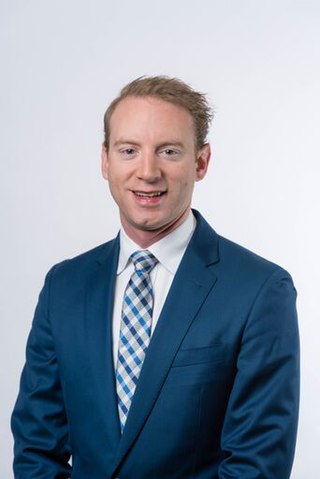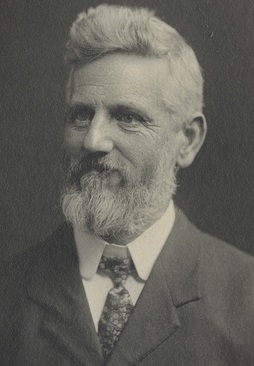
The premier of South Australia is the head of government in the state of South Australia, Australia. The Government of South Australia follows the Westminster system, with a Parliament of South Australia acting as the legislature. The premier is appointed by the governor of South Australia, and by modern convention holds office by virtue of their ability to command the support of a majority of members of the lower house of Parliament, the House of Assembly.

The House of Assembly, or lower house, is one of the two chambers of the Parliament of South Australia. The other is the Legislative Council. It sits in Parliament House in the state capital, Adelaide.

The Parliament of South Australia is the bicameral legislature of the Australian state of South Australia. It consists of the 47-seat House of Assembly and the 22-seat Legislative Council. General elections are held every 4 years, with all of the lower house and half of the upper house filled at each election. It follows a Westminster system of parliamentary government with the executive branch required to both sit in parliament and hold the confidence of the House of Assembly. The parliament is based at Parliament House on North Terrace in the state capital of Adelaide.

Flinders is a single-member electoral district for the South Australian House of Assembly. It is named after explorer Matthew Flinders, who was responsible for charting most of the state's coastline. It is a 58,901 km² coastal rural electorate encompassing the Eyre Peninsula and the coast along the Nullarbor Plain, based in and around the city of Port Lincoln and contains the District Councils of Ceduna, Cleve, Elliston, Lower Eyre Peninsula, Streaky Bay and Wudinna; as well as the localities of Fowlers Bay, Nullarbor and Yalata in the Pastoral Unincorporated Area. The seat was expanded in 2002 to include a western strip of land all the way to the Western Australia border.

The Leader of the Opposition in South Australia is the leader of the largest minority political party or coalition of parties, known as the Opposition, in the House of Assembly of the Parliament of South Australia. By convention, the leader of the opposition is a member of the House of Assembly. The leader acts as the public face of the opposition, and acts as a chief critic of the government and ultimately attempt to portray the opposition as a feasible alternate government. They are also given certain additional rights under parliamentary standing orders, such as extended time limits for speeches. Should the opposition win an election, the Leader of the Opposition will be nominated to become the Premier of South Australia.

Colonial elections were held in South Australia from 9 April to 23 April 1890. All 54 seats in the South Australian House of Assembly were up for election.

The 1893 South Australian colonial election was held on 15 April 1893 to elect all 54 seats in the South Australian House of Assembly.

The 1905 South Australian state election was held on 27 May 1905. All 42 seats in the South Australian House of Assembly were up for election. The incumbent conservative government led by Premier of South Australia Richard Butler in an informal coalition with the liberals was defeated by the United Labor Party (ULP) led by Leader of the Opposition Thomas Price. Each of the 13 districts elected multiple members, with voters casting multiple votes.

State elections were held in South Australia on 19 March 1938. All 39 seats in the South Australian House of Assembly were up for election. The incumbent Liberal and Country League government led by Premier of South Australia Richard L. Butler defeated the opposition Australian Labor Party led by Leader of the Opposition Andrew Lacey.
Colonial elections were held in South Australia on 9 March 1857. All 36 seats in the South Australian House of Assembly, and all 18 seats in the Legislative Council were up for election.
Colonial elections were held in South Australia from 19 March to 21 April 1887. All 52 seats in the South Australian House of Assembly were up for election.
Colonial elections were held in South Australia from 8 April to 27 April 1881. All 46 seats in the South Australian House of Assembly were up for election, along with six of the 18 seats in the South Australian Legislative Council.
Colonial elections were held in South Australia from 29 March to 30 April 1878. All 46 seats in the South Australian House of Assembly were up for election.
Colonial elections were held in South Australia from 10 February to 1 March 1875. All 46 seats in the South Australian House of Assembly were up for election.
Colonial elections were held in South Australia from 14 December to 27 December 1871. All 36 seats in the South Australian House of Assembly were up for election.
Colonial elections were held in South Australia from 28 March to 21 April 1870. All 36 seats in the South Australian House of Assembly were up for election.
Colonial elections were held in South Australia from 6 April to 7 May 1868. All 36 seats in the South Australian House of Assembly were up for election.
Colonial elections were held in South Australia from 20 February to 13 March 1865. All 36 seats in the South Australian House of Assembly were up for election.
Colonial elections were held in South Australia from 10 November to 28 November 1862. All 36 seats in the South Australian House of Assembly were up for election.
Colonial elections were held in South Australia from 9 March to 3 April 1860. All 36 seats in the South Australian House of Assembly were up for election.







